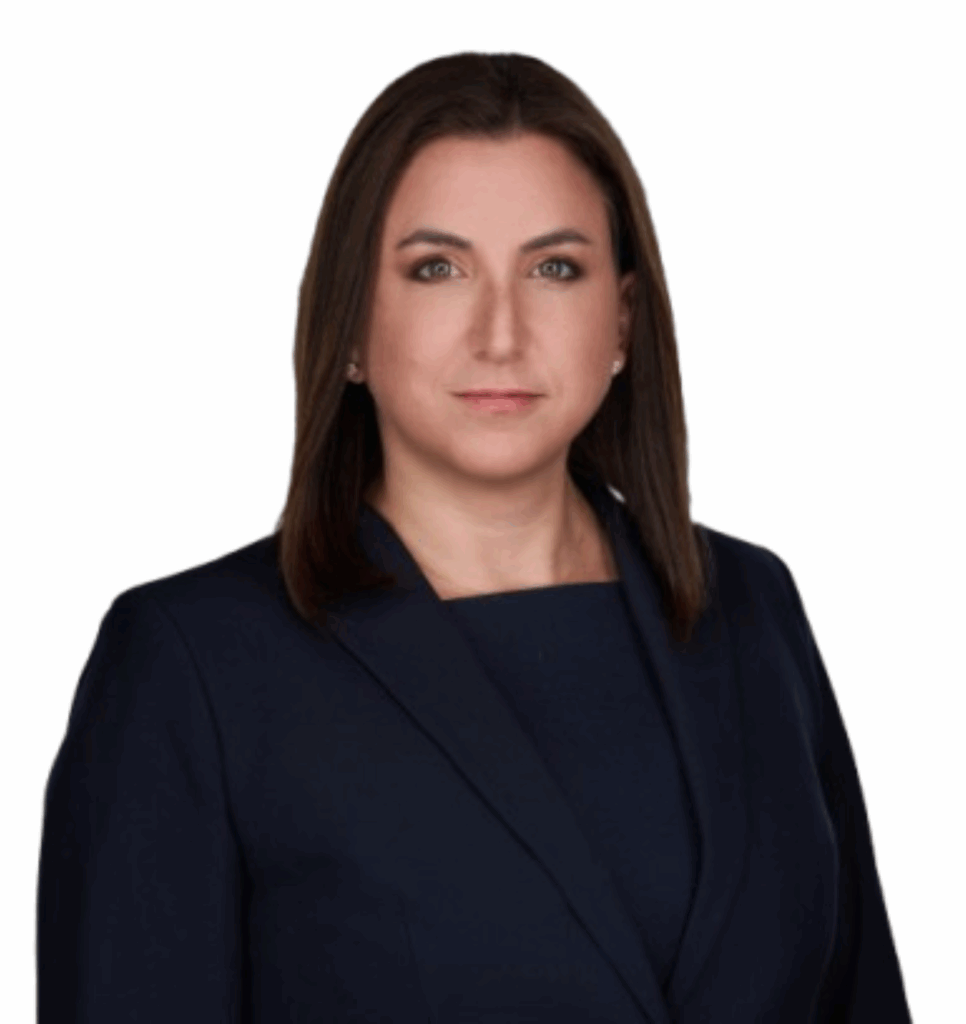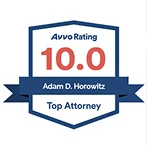If you or your child is a survivor of abuse at an Orlando-area school, you should know that Florida law provides a way to hold the responsible parties accountable for their failure to keep students safe.
Asserting your legal rights against a powerful educational institution isn’t a simple matter. These schools often have teams of lawyers focused on protecting their reputation and bottom line. Their primary duty is to the institution, not to the survivor.
You need someone in your corner, advocating interests.
At Horowitz Law, our firm's work is centered on representing survivors of sexual abuse. We understand how to demonstrate an institution's failures and hold them accountable. If you have questions about what happened at a school in the Orlando area, our Orlando school & university sexual abuse attorney are here to provide answers in a free, completely confidential consultation.
Call us at (954) 641-2100.
Orlando School & University Sexual Abuse Guide
- Our Experience in Holding Institutions Accountable
- Civil vs. Criminal Cases: What's the Difference?
- What Does Financial Recovery Look Like in a Civil Claim?
- The Unique Hurdles in School & University Abuse Claims
- Understanding Title IX and a School's Federal Obligations
- Deadlines for Filing a Sexual Abuse Lawsuit in Florida
- The School's Lawyers Work for the School, Not You
- How to Protect Your Rights From Home
- Frequently Asked Questions About School Sexual Abuse Claims
- You Have the Right to Be Heard
Our Experience in Holding Institutions Accountable
Horowitz Law is a nationally recognized firm that dedicates its practice to representing survivors of sexual abuse across the United States. Founded by Adam Horowitz, the firm has spent over two decades building a record of success against powerful institutions, including public and private schools, universities, and religious organizations that failed in their duty to protect the vulnerable.
A Track Record of Holding Institutions Accountable

Our firm has secured multi-million dollar verdicts and settlements for survivors, including a landmark jury verdict of over $70 million. This history is built on meticulous investigation and relentless advocacy. For his work in sexual abuse litigation, Adam Horowitz was recognized as "South Florida's Most Effective Lawyer" in the personal injury category by the Daily Business Review, a distinction that reflects a career spent challenging institutional defenses and setting new legal precedents.
The legal community has recognized our firm and its founder for the highest levels of professional achievement and ethical standards. Adam Horowitz holds an AV® Preeminent™ Peer Review Rating from Martindale-Hubbell, the highest possible rating for legal ability and ethical standards.
Our team, including attorneys DeeDee Scheller and Jessica Arbor, operates with a deep sense of compassion, providing trauma-informed representation that clients have consistently described as supportive and respectful.
Our Commitment to You
We make these promises to every person who contacts our firm:
- Free & Confidential Case Review: Your story will be heard in a safe, private space with no financial obligation. We are here to help you understand your options.
- No Win, No Fee Promise: You will not pay any attorney's fees unless we successfully recover compensation for you. This is known as a contingency fee basis.
- Direct & Personalized Attention: You are not just a case file. We ensure you have direct communication with our legal team and are treated with dignity throughout the process.
Serving Orlando and All of Central Florida
Our Orlando office is located at 17 E. Pine Street.
Civil vs. Criminal Cases: What's the Difference?
It’s important to understand that a civil lawsuit is completely separate from any criminal case. A criminal case is brought by the state to punish an abuser for breaking the law, potentially leading to jail time. A civil case is a lawsuit you file to hold an institution financially responsible for the harm you suffered.

You can file a civil lawsuit even if:
- The prosecutor declines to file criminal charges.
- The abuser is found not guilty in a criminal trial.
- The abuser is never identified or located.
This is possible because the burden of proof is different. In a criminal case, the state must prove guilt "beyond a reasonable doubt"—a very high standard. In a civil case, we only need to show by a "preponderance of the evidence" that the abuse more likely than not occurred and that the institution was negligent. This means we just have to show that there is a greater than 50% chance your claim is true.
What Does Financial Recovery Look Like in a Civil Claim?
The goal of a civil claim is to provide the financial resources for a survivor's recovery and to hold the responsible parties accountable. Compensation is generally divided into three main categories.
Economic Damages: Covering Verifiable Financial Losses
This is compensation for the direct financial losses resulting from the abuse. Think of it as a reimbursement for every dollar you had to spend because of what happened.
Examples include:
- Therapy and Counseling: Costs for psychologists, psychiatrists, and other mental health professionals.
- Lost Educational Opportunities: If the abuse forced you to drop out of school or change your career path.
- Lost Income: If you were unable to work or your future earning capacity has been damaged.
- Medical Bills: For any physical injuries that occurred.
Non-Economic Damages: Acknowledging the Personal Harm
This is compensation for the deep, personal harm that doesn't have a specific price tag. It acknowledges the emotional and psychological pain you have endured.

This includes:
- Pain and Suffering: For the physical pain and emotional distress.
- Emotional Anguish: For fear, anxiety, depression, or post-traumatic stress disorder (PTSD).
- Loss of Enjoyment of Life: Acknowledging how the abuse has impacted your ability to experience joy, sustain relationships, and engage in activities you once loved.
Punitive Damages: Punishing Wrongdoing and Preventing Future Harm
In cases where an institution's behavior was particularly reckless, like actively covering up abuse or ignoring clear warning signs, a court might award punitive damages. These are not meant to compensate for a specific loss. Instead, they are designed to punish the defendant and send a message that such behavior will not be tolerated.
The Unique Hurdles in School & University Abuse Claims
Holding an educational institution liable involves specific challenges, particularly in a large area like Orlando.
Proving the Institution Was Negligent
In many of these cases, the focus is not just on the abuser's actions but on the institution's failures. For instance, did a school in the Orange County Public Schools district fail to conduct a proper background check on a new hire? Did the University of Central Florida (UCF) ignore previous complaints made against a professor?
Our investigation will ask questions like:
- Did the school negligently hire or retain a dangerous employee?
- Was there a failure of supervision in dorms, on field trips, or during school activities?
- Did the school fail to report past allegations as required by Florida law?
Confronting Institutional Bureaucracies
Large school districts and universities have legal departments and procedures designed to minimize their liability. Getting access to personnel files, internal reports, and other key evidence is challenging. These institutions will not voluntarily hand over incriminating documents; obtaining them typically requires legal force through subpoenas and discovery motions.
Understanding Title IX and a School's Federal Obligations
Title IX is a federal law that prohibits discrimination based on sex in education programs that receive federal funding. This includes sexual harassment and sexual violence. Universities and schools covered by Title IX have a legal duty to respond promptly and effectively to allegations of sexual assault.
A school's failure to meet its Title IX obligations can be a form of institutional negligence. For example, a university may be held liable if it:
- Fails to establish clear and accessible procedures for reporting sexual assault.
- Conducts a biased or inadequate investigation into a complaint.
- Does not take reasonable steps to protect a student after a report is made.
- Retaliates against a student for filing a complaint.
Simply put, if the school knew or reasonably should have known about the harassment and responded with deliberate indifference, it can be held responsible for the harm that followed.
Deadlines for Filing a Sexual Abuse Lawsuit in Florida
A law known as the statute of limitations sets a deadline for filing a lawsuit. In Florida, recent changes to the law have given survivors of childhood sexual abuse more time to file a claim. For abuse that happened when a victim was under 16, there is no longer a deadline to file a civil case, provided the claim wasn't already expired before July 1, 2010.
However, these laws are complicated, with exceptions based on the date of the abuse and the victim's age. There is also another, more practical deadline related to evidence. It may sound like you have plenty of time, but evidence disappears the longer time goes on. Witnesses' memories fade, and electronic records might be deleted. The sooner an investigation begins, the stronger a case will be.
The School's Lawyers Work for the School, Not You
When an allegation of abuse surfaces, a school’s primary concern becomes protecting itself. As a large organization, its response is a business decision driven by reducing financial risk and managing public relations.
Their lawyers will investigate, but their goal is different from yours. They are looking for evidence to argue that the school did everything correctly and bears no responsibility. No matter how concerned their representatives may seem, a fundamental conflict of interest exists.
You need an advocate whose sole focus is your well-being. Our role is to ensure no blame is unfairly shifted onto you and to hold the institution accountable for its actions—or its failure to act.
How to Protect Your Rights From Home
While we handle the legal work, there are steps you can take to strengthen your potential claim.

- Create a Written Record: In a private journal, write down everything you remember. Include dates, locations, names, and specific details of what happened.
- Preserve Evidence: Keep any related documents, emails, text messages, or photos. Do not delete anything.
- Avoid Speaking with School Representatives: Do not give a recorded statement or sign documents from the school or its representatives without speaking to an attorney first.
- Be Cautious on Social Media: It's best to avoid posting about your case or emotional state online. The school's legal team can access this information and may use it out of context.
Frequently Asked Questions About School Sexual Abuse Claims
What if the abuse happened years ago? Can I still file a claim?
Quite possibly. Florida has extended the statute of limitations for many childhood sexual abuse cases. The exact deadline depends on factors like your age when the abuse occurred. It is always best to speak with an attorney to determine how the law applies to your specific circumstances.
Will my name be made public if I file a lawsuit?
We understand the need for privacy. In many sexual abuse cases, we can file the lawsuit using a "Jane Doe" or "John Doe" pseudonym to protect your identity during the legal process.
What if I don't have physical evidence?
Most sexual abuse cases do not depend on physical evidence. Your testimony is a powerful form of evidence. We build cases by corroborating your account with institutional records, witness statements, and expert analysis.
The abuser was another student, not an employee. Is the school still responsible?
Potentially. If the school knew about a student's dangerous behavior or failed to provide proper supervision to prevent student-on-student sexual assault, it may still be found negligent. This falls under the school's duty to provide a safe environment, a duty reinforced by laws like Title IX.
You Have the Right to Be Heard
The thought of confronting the institution that failed to protect you is intimidating. You do not have to do it alone.
The process of holding a school accountable begins with a single, private conversation.
Our Orlando sexual abuse lawyers are here to explain your options and help you decide what is right for you. Contact Horowitz Law today for a free and completely confidential consultation with a compassionate Orlando school and university sexual abuse attorney.
Call us at (954) 641-2100.